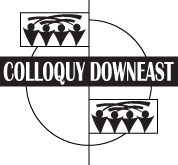Pandemics of the Past, Present, and Future
| |||||||
To put the colloquy in perspective the first two hour session would be a review of the major documented historical plagues. The major pandemics are:
- The great plague of 1348 and subsequent years, caused by Yersenia Pestis bacteria transmitted by a flea vector in a rat reservoir, which killed between 1/3 and 1/2 of the population of European cities whose population did not return to the previous level for a century or two. It had major economic and cultural impact.
- The recurrent smallpox virus epidemics which changed history by the decimation of indigenous populations in the new world and changed new world history. It represents the first development of a vaccine in the 18th century.
- The spread of waterborne bacterial diarrhea infections such as cholera which emerged from India in the 19th century and killed adults and children all over the developing world. It represented the first example of identification of clusters of disease outbreak pointing to the cause of the disease from well water. It led to a revolution in sanitation of cities, a major public health innovation.
- Malaria a parasite transmitted by a particular mosquito vector responsible for most of the death of millions of children in the third world, probably responsible for the perpetual lag of economic development in the third world.
- The influenza pandemic of 1918 which, although it killed 600,000 mostly young people in the USA and over twenty million world-wide, seems to have had little enduring economic or cultural impact in the shadow of WWI.
Each of these historical pandemics had different disease manifestations and modes of transmission, only two were viruses, only one a respiratory virus, and only one (smallpox) resolved by a vaccine. This first session discussion might put the future pandemics in perspective. Rapid vaccine development is one of the bright spots in defense of emerging pandemics but should not be to the exclusion of research on identification, testing and tracking, public health moderation of transmission and virulence as well as antibacterial and antiviral treatments.
A second session of the colloquy could be a brief review of the history of inoculation and vaccination (smallpox in the 18th century Colonial America).
The second half of the second session and the third session could be dedicated to looking at the unprecedented parallel development, testing and production of the Covid vaccine. A webinar lecture by Dr. Moncef Slaoui, former director of research at of SKF and former director of “Operation Warp Speed”, on covid vaccine development could be the introduction to this session.
The fourth session could be a continuing discussion of potential emerging threats and progress. While it is true that the likely pandemic threats will continue to emerge from viral respiratory infections such as coronavirus and influenza, it would be imprudent to devote resources exclusively to these threats, always “preparing for the last war.” This session will focus more on the biologic science rather than public health policy. What should be evident, though, is that successful intervention must recognize that the biotechnology/epidemiology infrastructure is like any information system, a complex adaptive system where innovation is not particularly well served by a top down autocratic global public health structure.
Dr. Richard Jacoby is a summer resident of South Blue Hill. His day job in Colorado is as a physician in anesthesiology.
▼ Registration
Registration
Bookings are now closed (or the colloquy has been cancelled)
We aren't currently accepting bookings for Pandemics of the Past, Present, and Future.
If you are trying to pay for a colloquy that you've already attended or have questions about refunds, please contact our Treasurer to work out the details.
▲ Hide...
